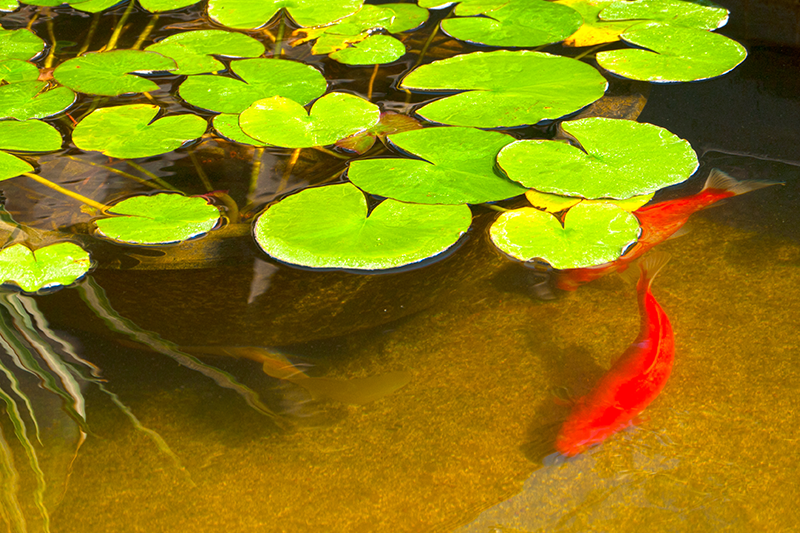Winter can be a challenging time for most living organisms. Find out how to care for your fish and garden pond when the cold weather arrives.

Living things find winter months tough. They struggle to find food, have to brave the cold and conserve their energy as best they can to survive until the spring. The fish in garden ponds also have to adapt to the sinking temperatures, and pet parents should ensure they are properly prepared for this inhospitable season. Here are six frequently asked questions about wintertime and pond maintenance.
1. Can fish freeze and catch colds?
The body of a fish always has the same temperature as the surrounding water, which means fish cannot freeze in the same way as you. It’s also why a fish cannot develop a fever – the body cannot generate and maintain the rising temperature. In addition, fish have no lungs (and thus no bronchial tubes) from which they could and would have to cough up phlegm. Therefore, fish cannot catch the colds that we humans experience.
2. Do fish still tend to fall ill during winter?
There are diseases that fish may develop during the cold season in particular. Although illness will not necessarily occur just because it is winter, fish are weaker by the end of the season, offering germs (as with many parasites) an easy target. At this time, your fish’s immune system may not have yet returned to full strength.
3. Should fish be fed as normal during winter?
It is a good idea to prepare fish for winter via specific feeding in autumn. When the temperature drops below 10°C, only feed them special food that is easy for your fish to digest. Your local Petbarn fish expert will be able to help advise good choices. Everything that the fish eat and digest during this time will protect their energy and fat reserves.
4. Do I need to bring my fish inside in winter?
No. Fish can normally spend the winter in the pond, provided it is deep enough. If they are well-conditioned for the winter, ‘normal’ pond fish such as Koi, Goldfish and Orfe will have no problems with low temperatures. Only highly-bred Goldfish varieties such as Ryukins may have to spend winter in an aquarium. However, make sure to bring the fish indoors at an early stage rather than waiting until it turns cold so they can acclimatise in a less stressful manner.
5. Can fish freeze if it gets icy?
To ensure that your fish survives winter unscathed, your pond must be of an adequate depth. A healthy fish will always hibernate in the deepest part of the pond and will not come into contact with any ice or frost. The colder it gets where you live, the deeper the pond should be. Otherwise, there is a danger that the water may freeze right down to the bottom in very cold winters.
6. Will the fish be in danger if the pond surface completely freezes over?
If your pond is well maintained, there is no need to worry if the surface of the water freezes. If, however, the pond is poorly maintained, it may prove dangerous to its occupants. Why? Oxygen may become scarce in the water and fermentation gases may develop that cannot be removed. If a pond is well maintained, this would only become a problem after a very long period of ice. Otherwise, a layer of ice on the water presents no danger.
Come speak to one of our friendly Petbarn team members for advice on your pond.
